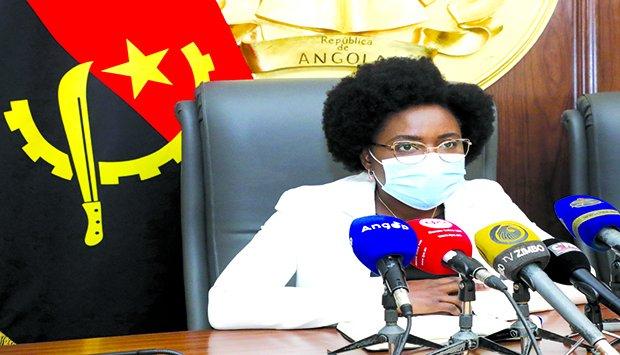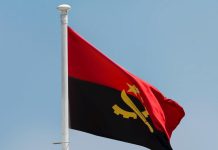Africa-Press – Angola. The Minister of Finance, Vera Daves, urged, Wednesday (23), in Luanda, companies in default to pay the installments of the assets they acquired from the State, whose debt value is estimated at around 14.1 billion kwanzas. .
Vera Daves, who was speaking, in an exclusive interview, guaranteed that the Institute for the Management of State Assets and Participations (IGAPE) is monitoring the situation and will propose measures to the competent bodies to reverse the situation, if defaults persist.
Despite this, the head of the Finance portfolio said that the performance of the process is positive, with 52 percent of implementation already completed, allowing the sale of 73 assets, a factor that led to a cash inflow of around 73 billion kwanzas. “It is now necessary to closely monitor this issue of defaults”, she recalled.
In her intervention, the Minister of Finance acknowledged that this will be a demanding year, insofar as there are still 68 assets for sale or at the limit of the beginning of sale, with the commercialization of the National Insurance Company of Angola being proposed for this purpose. (ENSA), Banco Angolano de Investimentos (BAI), Banco Caixa Geral Angola and the Angolan Securities and Debt Exchange (Bodiva).
“There are ongoing installments worth 100 billion kwanzas to be received, but there are other options for purchasing from factories that are being managed, let’s see if whoever manages them decides to buy or not. Now, we have to closely monitor these 14 .1 billion kwanzas of overdue installments”, he said.
guarantee funds
The Minister of Finance took the opportunity to announce the restructuring of five guarantee funds, in a logic of six months per fund, with priority for infrastructure, with work in progress for its condensation, although most of these are accountable , although not all of them have the necessary quality. “We closed a restructuring then left for another, until closing the five funds that we want to come into existence”, she underlined.
The Credit Guarantee Fund was one of the cases pointed out by the minister as effectively granting guarantees for some financing, which are given at the banking level. In addition to this, there is also the Agrarian Development Support Fund (FADA), which is geared towards activities related to the agricultural sector, purchase of tractors and support for some projects related to family farming.
The Angolan Venture Capital Active Fund (FACRA) was not forgotten by the Minister of Finance, who guaranteed to be active and has made its contribution, albeit to a lesser extent, and announced an additional capital contribution for this year, which does not affect the restructuring that must continue to be carried out in this direction.
“Monitoring this number of funds is challenging, so the decision was made to restructure its framework, condensing them. In the meantime, we will focus on those that have generated value in some way, whose initiatives are there and are visible”, he said. .
Debt estimated at US$67.5 billion
Angola’s public debt currently stands at US$67.5 billion, of which US$20 billion was contracted with China, which remains the largest creditor, revealed yesterday in Luanda, the Minister of Finance, Vera Daves de Sousa.
Vera Daves announced these figures in an exclusive interview with Rádio Nacional de Angola (RNA), where she also assured that her management remains sustainable, although she assumed that the exact value of the debt would vary according to the exchange rate, since there are debts in kwanzas, some indexed to the exchange rate and debt in foreign currency.
“The value of this debt will progressively start to reduce and then the weights will change depending on this amortization”, she pointed out.
The minister also mentioned that the weight of the United Kingdom’s debt and with the internal market is decreasing and as the debt is due, the State mobilizes less financial resources. “When a treasury bond or treasury bill matures, we pay the creditors and when we go to the market to make new issues, we borrow less than we pay,” she said.
For Vera Daves, net indebtedness is now lower, compared to what it has been in past years, so that the level of exposure of local banks to government bonds has also been reduced in this way.
In addition to the financial public debt, she stressed, there is one that arises from financing agreements with banks, with international financial organizations or treasury bonds, treasury bills and commercial public debt.
Regarding this second group of debt, the minister says that they have encouraged and motivated public managers, budget units, to ensure that this does not arise, therefore encouraging respect for the rules of budget execution, as well as asking companies that agree to provide services or deliver goods, on the basis of a contract, to avoid this practice.
Guaranteed payment of public debt
The Minister of Finance, Vera Daves, guaranteed, in the wake of the interview with RNA, that the General State Budget (OGE) for this year, reserves a total of 450 billion kwanzas for debt payment public information for the period 2013-2018.
Vera Daves also pointed out that the process of sending the records to the General Inspectorate of State Administration (IGAE) is already underway, which after inspecting it will give the green light for payment.
“We made a computer development that allows us to send the processes digitally through the State’s Integrated Financial Management System (SGFIE)”, she said.
Guaranteed salaries
With regard to the Angolan State’s Single Treasury Account, she guaranteed, it still does not have a reserve capable of guaranteeing three months’ salary for the civil service, but the current month. “Every month is a challenging exercise to secure the necessary financial resources to meet the month’s expenses,” she said,
According to the minister, tax revenues are used to pay current expenses which, historically, for approximately three or four years, have been sufficient to cover expenses on a monthly basis.
“Ideally, a month’s current income would cover more than a month’s current expenses, but that’s still not the case,” she said, noting that a month’s current expenses cover a month’s expenses.
She added that the Executive still does not feel comfortable in treasury management and the stress is on the time lag, because these expenses have to be executed at the moment of time before they fall into the account.
Vera Daves revealed that taxpayers pay taxes at the very end and civil servants expect to receive their salary at a time before the tax is paid.
The management of this lag, she highlighted, is what causes the “treasury stress”, hence the need for issues in the internal market has been managing the situation.
For the Minister of Finance, if there is a better non-oil revenue than what has been achieved so far, in January and part of February, this slack could arise and the two effects of oil and non-oil revenue could bring more interesting surpluses to the country. .
For More News And Analysis About Angola Follow Africa-Press






